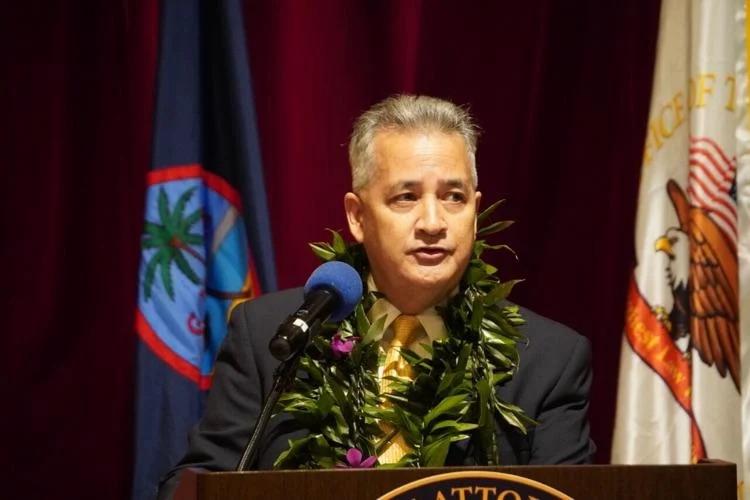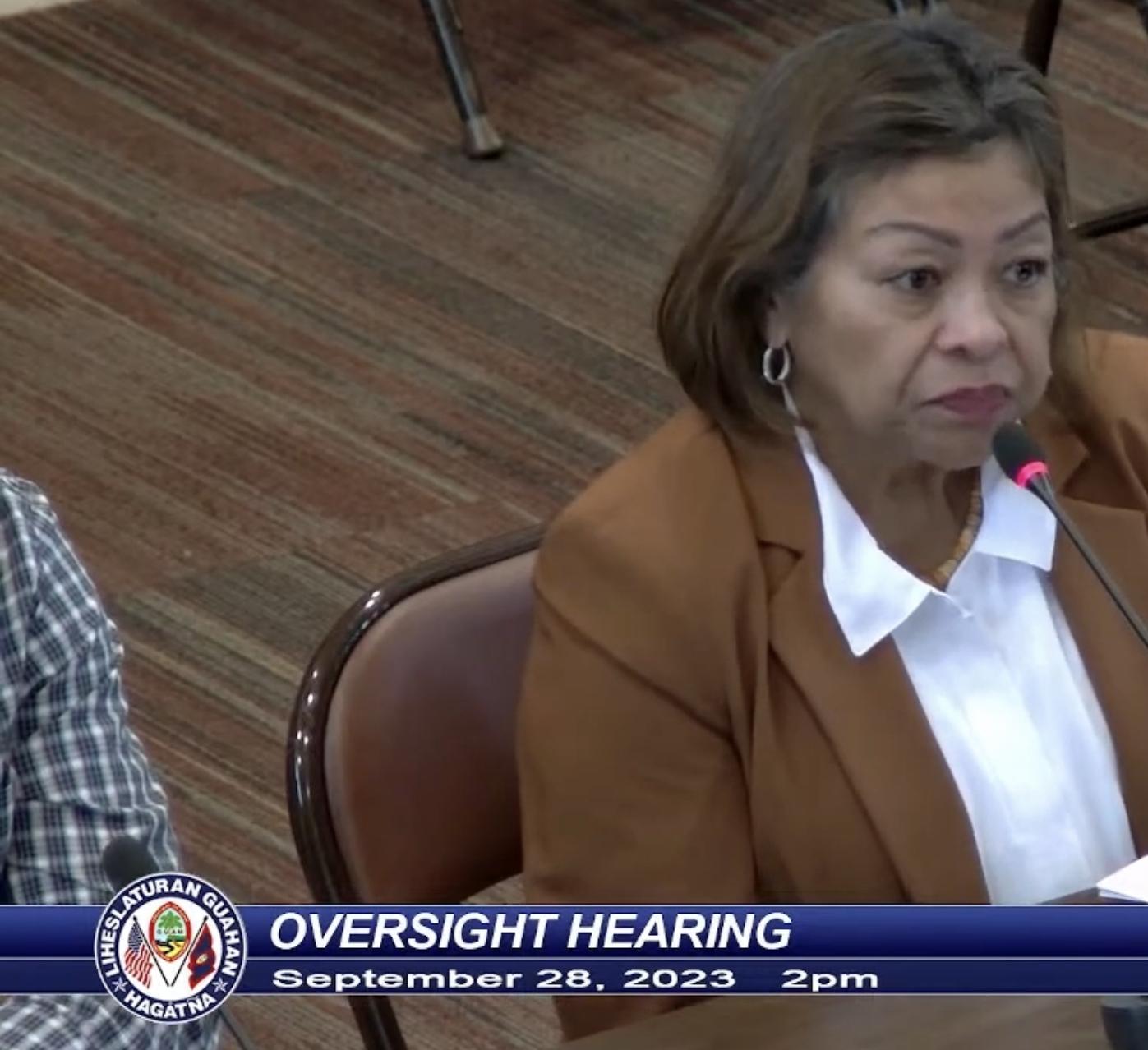The governor’s office called it “fake news” when the media reported the shady deal in late 2022, but now a professional and independent audit is calling it exactly what the media reported then: the Guam Memorial Hospital’s contract with MedHealth was a sweetheart deal with millions in question.
The evidence and allegations are so “real,” Attorney General Douglas Moylan has confirmed he launched a criminal corruption investigation months ago, and that his office was just waiting for the results of the Office of Public Accountability’s audit that published last week before making its next move.
According to the audit, overseen by Public Auditor Benjamin Cruz:
- GMH broke procurement laws to award the contract to MedHealth;
- MedHealth was unresponsive to the request for proposals that led to the contract;
- It appeared the entire procurement was designed to benefit MedHealth;
- GMH paid MedHealth commissions for GMH and even another vendor’s efforts to collect money GMH would have collected anyway;
- That created nearly $5 million in questioned costs, which includes finances involving federal funds. BUT THAT WAS NOT THE FULL EXTENT OF THE FINANCIAL IMPACT TO GUAM’S STRUGGLING HOSPITAL;
- During the MedHealth contract period, GMH collected about 20 percent less of gross patient revenues as compared to the years prior to MedHealth’s involvement.
Government officials have been convicted by local and federal juries for less.

“This audit reviewed the acquisition and performance of the Revenue Cycle Management contractor in great detail and noted several deficiencies that warrant further legal review,” Mr. Cruz, in a rare instance where he has made written comments attached to one of his audits, wrote in a news release. “From the unsolicited offer by a contractor to them being granted preferential treatment by submitting percentage-based compensation when the RFP clearly stated a fixed-price cap for the initial term; to an unreasonable basis for the contractor billing GMHA $5 million for services rendered, to which GMHA stated they did not perform, we concluded to question $4.9 million paid and/or recognized as payable by GMHA for the contractor’s invoices. What really baffles me in all my years of public service is how GMHA management allowed an unsolicited bidder to receive a multi-million-dollar contract that was non-responsive to begin with.”
On November 3, 2022, after Kandit broke the story of the contract controversy involving MedHealth, we published the following (a relevant excerpt from the full story):
—–
In Fiscal Year 2021, GMH agreed to pay MedHealth 12 cents of every dollar the hospital collects after collecting $7.2 million a month. That $7.2 million threshold was set in contract negotiations between MedHealth and GMH. MedHealth thus far has invoiced more than $3.4 million, and GMH administrator Lillian Perez-Posadas has since renewed the contract for another year.
But according to GMH’s audited financials of Fiscal Year 2020 – the year before the MedHealth contract went into effect – GMH on its own collected $104 million in revenue. That came out to a monthly average of $8.7 million, or $1.5 million more than the threshold from which MedHealth now collects a 12 percent commission.
“How does GMH continue to justify MedHealth’s contract? And why did GMH agree to set the monthly threshold at $7.2 million ($86.4M annual), when GMH on its own in FY2020 collected $104 million (a monthly average of $8.67M)?” Kandit asked GMH legal counsel Jeremiah Luther and spokeswoman Cindy Hanson nearly one week ago.
Neither official responded to the inquiry. Kandit followed up yesterday with both officials and included Ms. Perez-Posadas in the inquiry. None have responded.
—–
GMH unilaterally ended the MedHealth contract days after that story ran. Mr. Luther eventually did respond to Kandit. Ms. Perez-Posadas never did.
According to an affidavit of ownership GMH disclosed to Kandit from a Freedom of Information Act request for documents in late 2022, MedHealth was owned by Rene Ramos, Paul Pineda, and Glenn Hermes.
Mr. Ramos has several multi-million dollar contracts with both the governments of Guam and the CNMI, including the award of an emergency procurement to house several Guam Department of Public Health and Social Services offices at his RanCare building in Tamuning. Another audit released by the Office of Public Accountability states the DPHSS now is GovGuam’s top renter, spending $2.8 million on rent this past fiscal year. Mr. Ramos and his companies also had contributed thousands to the governor’s reelection campaign.
As previously reported, among the revenues included in the formula for MedHealth’s cut of profits is the garnishment of tax refunds to GMH. Then-Department of Revenue and Taxation director Dafne Shimizu said she was not aware of such arrangement, while Ms. Hanson admitted GMH agreed to the inclusion in the formula.
Audit triggers next phase in criminal investigation
“We have been investigating this matter and were awaiting the OPA’s report,” Douglas Moylan confirmed. “Our team will be in contact with the OPA now that they have completed their forensic financial review.”
Mr. Cruz’s audit alleges several crimes ranging from procurement violations to wire fraud were committed by unnamed parties.

Sweetheart deal
The audit discovered GMH tailored its procurement to MedHealth in April 2021 to conduct revenue cycle management services from May 2021 (when the governor signed the contract) to November 2022. (Revenue cycle management, or RCM, is the process of figuring out what is owed to a hospital by whom using medical billing software. It is important, especially to hospitals like GMH, because if something isn’t billed on time to the right person or company, then the debt becomes uncollectible).
The tango between GMH and MedHealth started two years prior, though, during the first year of the Leon Guerrero administration.
“In November 2019, GMHA signed a memorandum of understanding (MOU) with the Contractor after receiving an unsolicited offer, as stated therein, for a no-cost assessment of the Hospital’s RCM,” the audit states, continuing, “Guam procurement law1 and GMHA’s procurement regulations2 provide guidelines on the definition and processing of an unsolicited offer; however, there was no evidence that the GMHA adhered to these regulations in that GMHA stated that the offer was evaluated through the RFP process, and thus provided copies of evaluation documents for RFP No. 003-2020. Despite GMHA’s deficiencies in following its own procurement rules and procedures for an unsolicited offer – evident by the absence of the required documents – GMHA signed the MOU with the Contractor in November 2019.”
One month after GMH signed the MOU with MedHealth, the public agency “attempted to use sole source procurement to hire” MedHealth following the no-cost assessment.
The OPA cited Guam law, which states “sole source procurement shall not be permissible in any procurement arising from an unsolicited offer.”

That sole source contract was signed by MedHealth and hospital administrator Lillian Perez-Posadas, but the contract never went into effect because the attorney general did not sign off on it. The OAG told GMH to go through the RFP process instead.
At first, GMH tried to skirt a procurement law requirement for OAG involvement in the RFP process by attempting to contract MedHealth for $450,000 for a six month period through RFP No. 002-2020. Contract periods normally are for one or more years. The appearance, in this case, is that GMH wanted to avoid triggering the procurement law requiring OAG involvement in the RFP if the procurement value exceeded $500,000.
“Additionally, GMHA did not maintain a complete procurement record for this RFP, with notable documents missing such as the results of the pre-evaluation and the final evaluation of the Contractor’s proposal,” the audit states.
Then, GMH issued the second RFP (No. 003-2020), which ultimately led to the contract with MedHealth signed by Lou Leon Guerrero.
“For both of GMHA’s RFPs for RCM services, we found indications of preferential treatment towards hiring the Contractor through GMHA (1) allowing submissions of percentage-based model proposals for RFP No. 002-2020 after Contractor affiliate’s request; (2) issuing RFP No. 003-2020 after discussions with the Contractor under RFP No. 002-2020; and (3) drafting a contract which includes the compensation terms included in the Contractor’s proposal.” – audit
Throughout the period of the two RFP attempts, evidence showed MedHealth pushed for a contingency-based compensation at a percentage rate to which GMH not only capitulated, but its Board of Trustees knew was being pushed by GMH management. This is according to the audit’s discussion, “Factors Indicative of Preferential Treatment.”
GMH post-audit argument conflicts with CEO’s own attestation
During the audit closeout and while GMH had the opportunity, its officials argued that MedHealth’s “unsolicited offer referred to in the MOU did not meet the definition of an unsolicited offer, as GMHA stated that offer was delivered through a presentation to GMHA’s Board of Trustees.”
However, contained within the recitals of the MOU is language that MedHealth extended the “unsolicited offer.” Both GMH CEO Lillian Perez Posadas and MedHealth’s managing member “attested to the truth and accuracy of the recitals.” Mr. Cruz emphasized that quotation.
The public auditor found no evidence GMH followed its procurement regulations for unsolicited offers, and declared that the attempt to sole source MedHealth was a criminal violation of the law.
MedHealth’s proposal should have never been accepted
According to the OPA’s investigation, the RFP that led to MedHealth’s contract specified “offerors shall not submit any cost or pricing data with their proposal.”
“[T]here were two instances in which the [MedHealth] violated the provision by providing cost or pricing data in its proposal,” the audit states. That means MedHealth was non-responsive to the RFP. Its offer should have been automatically rejected.
“The appointed evaluators – which were the same members retained from RFP No. 002-2020’s evaluation committee – did not comment on the appearance of the Contractor’s non-responsiveness in the opening pre-evaluation or in the final evaluation,” the audit states. “Since the Contractor submitted cost or pricing data with their proposal in violation of the General Terms and Conditions of the RFP, the Contractor should have been disqualified as a nonresponsive bidder.”
The audit does not name who the appointed evaluators were.
GMH paid MedHealth for money it was going to collect anyway
As reported by Kandit in the breaking of this story in late 2022, GMH was paying MedHealth a commission on the collections of revenue from sources that would have paid GMH with or without MedHealth’s help. GMH included the collections of revenue from insurance providers, Medicare, Medicaid, Medically Indigent Program (MIP), and from the garnishment of tax refunds in the threshold and post-threshold calculations for MedHealth’s commission.
That resulted in MedHealth billing $5 million for its so-called services, and GMH paying $4.9 million in now questioned costs to MedHealth.
And not only was MedHealth paid for services it did not render, or failed to render in accordance with the contract, according to the OPA, GMH collected less than half of all gross patient revenues during the time of the MedHealth contract. That is about 20 percent less that what GMH collected prior to MedHealth coming on board.
To make matters worse, according to the audited financials of GMH during the period of the MedHealth contract, the hospital’s cash flow and patient receivables issue actually worsened.
According to the OPA audit on MedHealth:
“Additionally, GMHA’s independent auditors have noted that the Hospital has struggled with collecting patient receivables since FY 2015. The enlistment of an RCM consultant served, in part, as GMHA’s corrective action to address the independent auditor’s findings; however, GMHA’s FY 2022 report on compliance and internal control indicated the same finding concerning patient receivables, noting a $7.6M increase from FY 2021’s unbilled receivables of $7.5M. This finding further contributes to GMHA’s cash flow issues and inability to pay its vendors timely – which included the Contractor, as the September and October 2022 invoices remained unpaid as of August 2023.”
GMH lawyer: It was legal because I said so
(NOTE: At the time of the MedHealth contract with GMH, the hospital’s legal counsel – Jeremiah Luther – enjoyed a relationship with the office of then-attorney general Leevin Camacho. That ended in January 2023, when Douglas Moylan became the attorney general and almost immediately chastised agencies like GMH for its independence from the OAG. Mr. Moylan has been advocating for the legislature to revoke these special privileges, arguing that independently-hired lawyers like Mr. Luther may oftentimes be at odds with the attorney general, who is the chief legal officer and chief law enforcer of the local government.)
As part of its response to the OPA’s presentation of evidence of illegal activity by GMH in the procurement and performance of the MedHealth contract, GMH legal counsel Jeremiah Luther submitted a written response stating that the procurement process was followed because the Office of the Attorney General (OAG) signed off on the procurement.
At the time of the MedHealth procurements, Mr. Luther was the deputized representative of the OAG. Mr. Luther wrote the following, an excerpt from his full response:

“When performing a post hoc evaluation of a contract resulting from the government procurement process, the following principles apply: (1) the Attorney General of Guam’s approval as to form and legality carries with it the implicit determination that the procurement process leading up to execution of the contract complied with applicable law and (2) an executive agency and its administrator may rely on the Attorney General’s signature and approval when performing their contractual obligations and when authorizing payments due under the contract.”
Among the audit’s contentions, however is that the attempted sole source procurement was for an amount below $500,000, and therefore did not involve the OAG at all. Mr. Luther did not address that in his response.






2 Comments
David
01/07/2024 at 4:48 PM
The art of corruptions!
Alan San Nicolas
01/08/2024 at 4:53 AM
Imbestiga pues kastiga yanggen guaha beda ni ti kombieni. Ti guáilayi na en ofresi ni kontrata aka plea agreement. Enao na meggai na achaki gi entre I espitat. Pues duru ma ripotte na I achaka gaigi gi salape sa ti nahong. TOKA !!!!